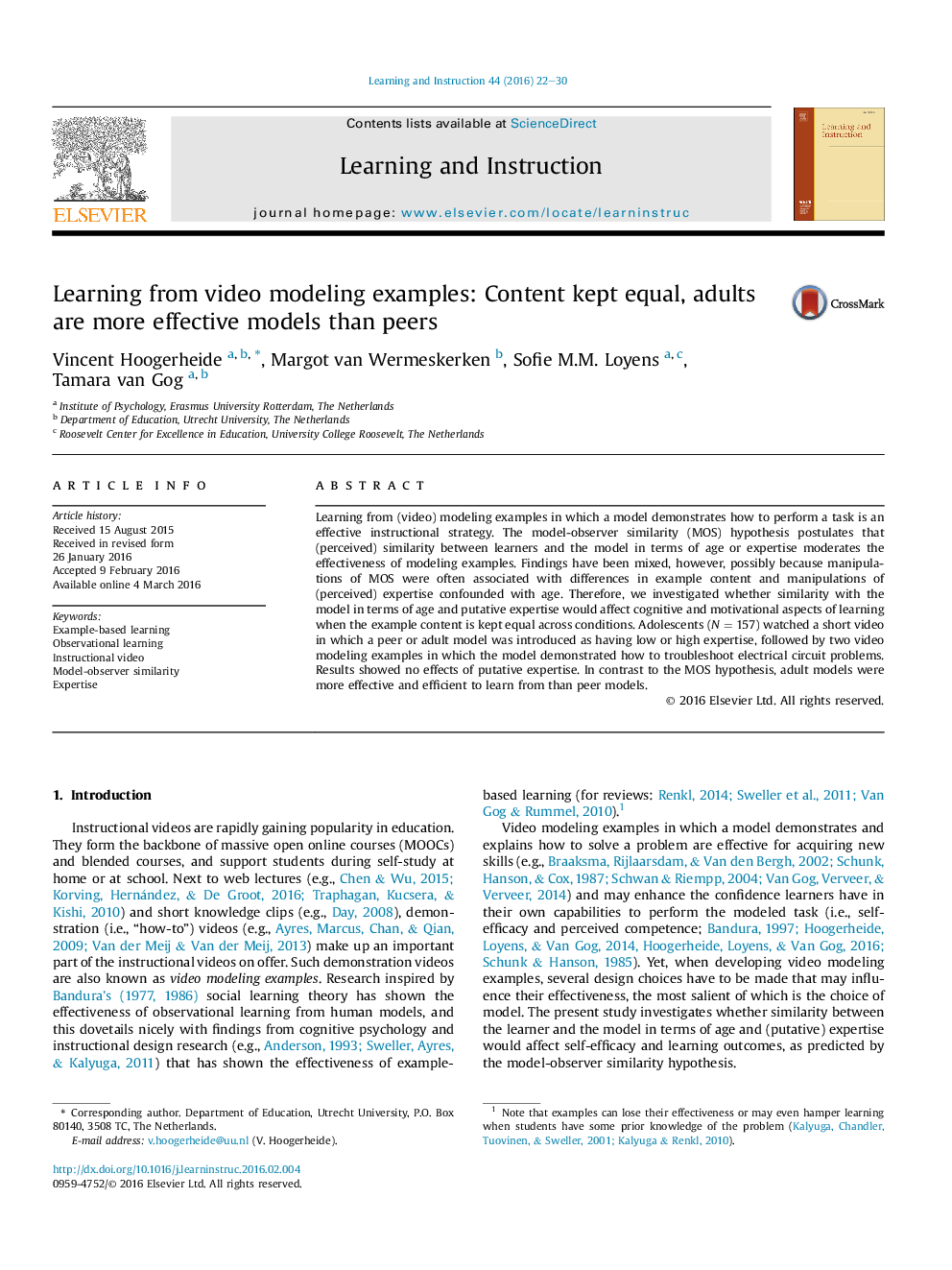| Article ID | Journal | Published Year | Pages | File Type |
|---|---|---|---|---|
| 365469 | Learning and Instruction | 2016 | 9 Pages |
•We investigated if model-observer similarity (MOS) affects learning from video examples.•Adolescents learned a science task from adult or peer models with ‘high’ or ‘low’ expertise.•Example content was kept identical across conditions.•MOS in putative expertise did not affect learning outcomes.•Age had a reversed effect: adults were more effective and efficient models than peers.
Learning from (video) modeling examples in which a model demonstrates how to perform a task is an effective instructional strategy. The model-observer similarity (MOS) hypothesis postulates that (perceived) similarity between learners and the model in terms of age or expertise moderates the effectiveness of modeling examples. Findings have been mixed, however, possibly because manipulations of MOS were often associated with differences in example content and manipulations of (perceived) expertise confounded with age. Therefore, we investigated whether similarity with the model in terms of age and putative expertise would affect cognitive and motivational aspects of learning when the example content is kept equal across conditions. Adolescents (N = 157) watched a short video in which a peer or adult model was introduced as having low or high expertise, followed by two video modeling examples in which the model demonstrated how to troubleshoot electrical circuit problems. Results showed no effects of putative expertise. In contrast to the MOS hypothesis, adult models were more effective and efficient to learn from than peer models.
